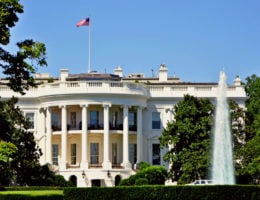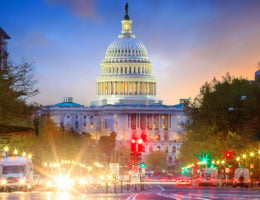Late last year, after a month-long trial, a Baker McKenzie team secured a complete defense verdict in favor of our client MedMen and its two co-founders. The trial was the culmination of three years of intense litigation. The result was publicized in Law360, among other outlets.
In this unique three-part webinar series, members of Baker McKenzie’s North America Trial Team will provide insight surrounding this litigation win and the steps taken to achieve it, from inception to defense verdict
Following our first two short videos on key trends (see here) and the semiconductor supply chain (see here), Baker McKenzie is pleased to launch the third in our Biden Supply Chain Policy video series focused on the large-capacity batteries supply chain. This is another of the critical supply chains that has been a particular focus of the Biden Administration’s supply chain policies.
In an era where supply chain disruptions and risks are regular front-page news, the Biden Administration has been undertaking a range of initiatives intended to create resilient supply chains that reflect the administration’s policies around national security, foreign policy, human rights and the US economy.
On 31 October 2021, the EU and US issued a joint statement announcing that they had reached an agreement to end their dispute over steel and aluminum tariffs. This agreement removes the US “Section 232” tariffs on imports of EU steel and aluminium, imposed during the Trump administration, whilst the EU has agreed to suspend additional duties imposed on US goods in retaliation. Both sides have also agreed to suspend disputes initiated against each other at the WTO in relation to the tariffs.
On 8 October 2021, the Office of the United States Trade Representative issued a notice and request for public comments on the potential reinstatement of certain exclusions of tariffs on Chinese imports imposed under USTR’s Section 301 investigation. USTR will examine 549 previously granted exclusions, many of which expired since 31 December 2020, for possible reinstatement.
Concern regarding IP theft and other forms of unfair trade practices have been of paramount importance in the past five years in the United States – and have indeed been the justification for imposing significant and long-lasting trade barriers. The Biden Administration affirmed its commitment to using a wide range of remedies to address such trade practices through a set of reports on the 100-day interagency reviews conducted pursuant to Executive Order 14017 “America’s Supply Chains” (the “Reports”).
In the recent flurry of US Government activity related to Xinjiang, one thing is clear: trade compliance risks continue to increase for companies with supply chains that involve Xinjiang. These latest actions add to the expanding list of companies that face import bans, export bans, and sometimes both, in addition to broader measures under consideration in Congress. This blog post summarizes the past month’s developments.
In the recent flurry of US Government activity related to Xinjiang, one thing is clear: trade compliance risks continue to increase for companies with supply chains that involve Xinjiang. These latest actions add to the expanding list of companies that face import bans, export bans, and sometimes both, in addition to broader measures under consideration in Congress. This blog post summarizes the past month’s developments.
Trade secrets are broad in scope and can be what provides your business with a competitive edge, ensures efficiencies and tracking, results in a better product or service and enables better marketing and identification of the target consumer. Yet when it comes to working with commercial partners in supply chains, the risk to this proprietary information can be put at risk.
We are pleased to invite you to our Virtual Global Trade Conference. In lieu of our annual conference in Bellevue, WA, we are excited to again provide a virtual offering available to all our clients and friends worldwide! The conference will be comprised of nine one-hour sessions over the course of three days.









